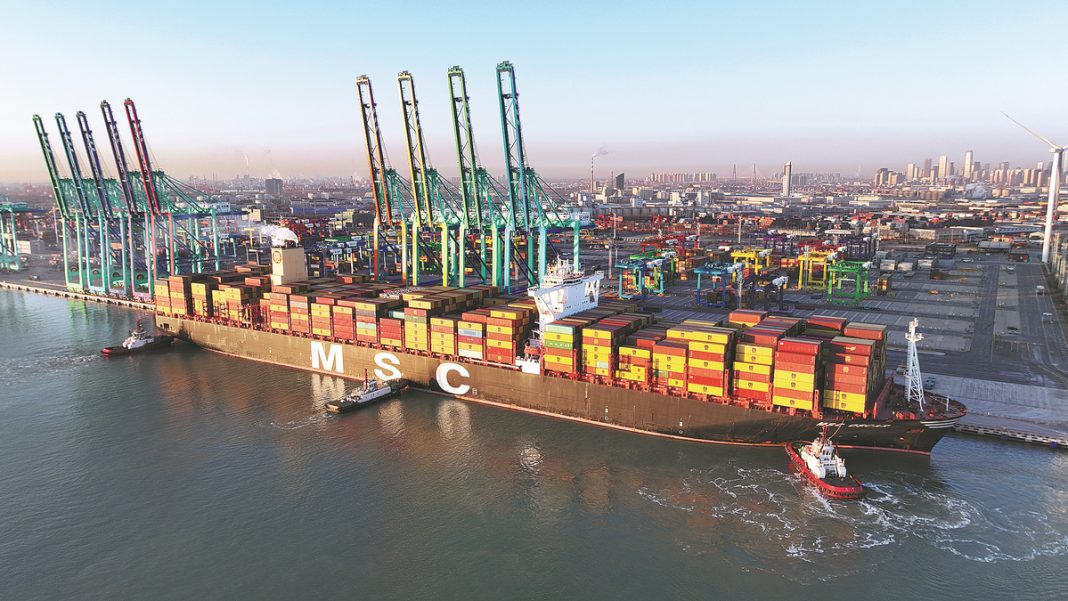BEIJING: Beijing, Tianjin Municipality and Hebei province, neighboring regions collectively known as “Jing-Jin-Ji,” are reshaping regional trade dynamics through an innovative fusion of air and sea gateways.
Against the festive backdrop of the Chinese Lunar New Year, the logistics and goods transportation sectors are thriving as Beijing Capital International Airport and Tianjin Port, located 180 km apart, synchronize efforts to drive vibrant regional development.
The “double ports” gained momentum in August last year when the administrative committees of the Beijing Capital International Airport Economic Zone and the Tianjin Port Free Trade Zone signed a memorandum of cooperation, aiming to enhance customs clearance integration. Beijing lacks a seaport, and the crucial port city of Tianjin plays a pivotal role in the maritime trade of the Beijing-Tianjin-Hebei region.
Streamlined customs clearance processes have brought significant benefits for businesses like Keyuan Xinhai (Beijing) Medical Products Trade Co Ltd, notably reducing the transport time for the company’s rare-disease drug, Aubagio, from three days to just one day.
Containers carrying Aubagio can now enter China through Tianjin Port, clearing customs swiftly before boarding refrigerated trucks to the Beijing Capital International Airport Economic Zone. The shipments then await nationwide distribution in temperature-controlled warehouses. “Last year, nearly 16 percent of our pharmaceutical trade was imported via sea freight through Tianjin Port,” said Hu Xiaoxia, general manager of the company’s foreign affairs department. “It was very convenient.”
In May, cooperation efforts were solidified further when the Beijing Municipal Commerce Bureau, the Tianjin Commission of Commerce and the Hebei Development and Reform Commission inked a pact to deepen port cooperation, boost customs facilitation and promote synchronized growth in cross-border trade. In the same month, Tianjin Port Group and Hebei Port Group signed a cooperation agreement to enhance the radiating and driving roles of ports, and to provide robust support for the coordinated development of the Beijing-Tianjin-Hebei region. –Agencies






